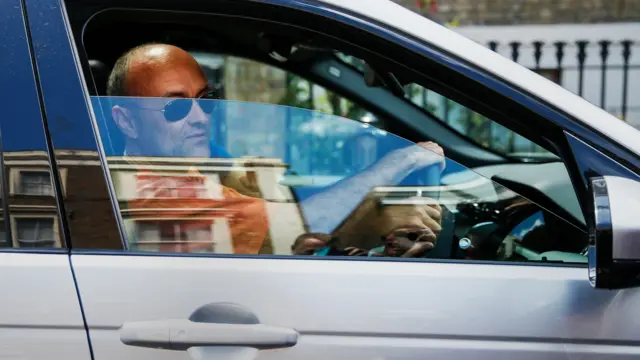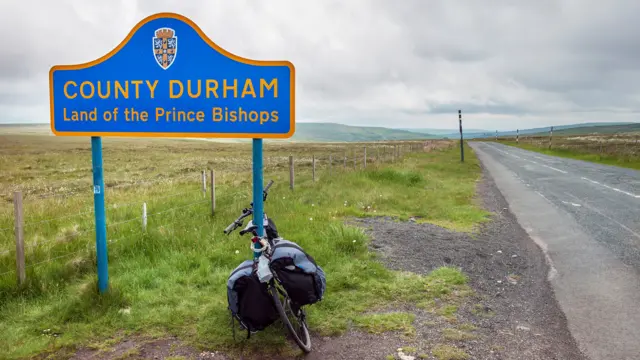Five unanswered questions on the quarantine rulespublished at 13:05 BST 10 June 2020
Travellers to the UK now have to self-isolate for 14 days. But how will the rules work in practice?
Read MoreTravellers to the UK now have to self-isolate for 14 days. But how will the rules work in practice?
Read MorePresident Trump claimed a man was trying to "black out" police equipment, but is this possible?
Read MoreReality Check examines the weekly deaths figures for nations and regions across the UK.
Read MoreLondon is the latest UK city to trial e-scooters - which the government hopes will be a more environmentally-friendly way to travel.
Read MoreChina and the US are in a tense war of words but what actually happened during the early outbreak?
Read MoreCO2 is at the heart of our changing climate. Here's why.
Read More Reality Check
Reality Check
Health Secretary Matt Hancock said: “If you look at the proportion of people in the UK who have sadly died in care homes, it is significantly lower than comparable countries across Europe.”
The government has continually stressed the difficulties of making meaningful international comparisons of coronavirus deaths and, if anything, the caveats around comparing care home deaths are even greater.
A report, external from the European Centre for Disease Prevention and Control a month ago suggested that the figures for coronavirus deaths in English care homes were low by European standards, but that figure would be sensitive to the amount of testing being carried out in care homes, which was relatively low early in the outbreak.
If you look at the ONS figures, external for coronavirus deaths up to 22 May, 29% of those in England and Wales who had coronavirus mentioned on their death certificates died in care homes.
But the difficulty of making classifications in this area was highlighted in another report from the ONS, external last week. It looked at non-Covid-19 deaths compared with a five-year average and analysed what the people who were dying from things other than coronavirus were dying of.
Two thirds of those deaths were due to dementia, Alzheimer's or a category called “symptoms, signs and ill-defined conditions”, which generally indicates old age and frailty. It may be difficult to spot the symptoms of coronavirus if these people had in fact been infected.
You can read more about why international comparisons are difficult here.
Officials said they planned to test all 11 million people in the city of Wuhan.
Read MoreWe examine claims of bribes and poison, a positive virus test that was not and anti-virus "badges".
Read MoreDebunking some of the most widely shared misleading posts and videos about the George Floyd protests.
Read MoreGeorge Floyd's death has sparked protests across the world and raised questions about police practice.
Read MoreProtests after the death of George Floyd have led to a surge in misleading videos and unfounded theories.
Read MoreThe US president and his likely election rival have been sparring over China and the coronavirus.
Read MoreFact-checking vaccine claims - including ones about the ex-Microsoft boss and a dubious cow-dung trial.
Read MoreA wide range of false and misleading health claims continue to spread on social media.
Read More Reality Check
Reality Check
 Image source, Getty Images
Image source, Getty ImagesBoris Johnson’s top aide has defended making a 260-mile journey from London to north-east England with his family during lockdown at the end of March.
Dominic Cummings says he did the "right thing" to be near relatives. His wife had coronavirus symptoms, and Downing Street says he wanted to ensure he had childcare if he got sick too.
The UK Government advice on essential travel at the time, which still remains in place, external, includes:
- Not visiting second homes, whether for isolation purposes or holidays
- Not leaving your home, the place you live, to stay at another home
- Remaining at your primary residence, to avoid putting additional pressure on communities and services at risk
Read more about social distancing and self-isolation
 Reality Check
Reality Check
 Image source, Getty Images
Image source, Getty ImagesDominic Cummings, the PM’s top adviser, says he behaved “reasonably and legally” when he made a trip to an address in Durham at the end of March to be near relatives.
He says it was because his wife had Covid-19 symptoms and he was worried about childcare if he became ill as well.
The UK Government’s official advice, external says you shouldn’t visit another property - whether for isolation purposes or holidays.
But in law, the definition of a “reasonable excuse” has never been clear. Read more about what powers the police have.
Claims that badges can protect wearers from coronavirus and a cannabis treatment fact-checked.
Read MoreWhat factors determine a potential second wave of Covid-19 infections?
Read MoreMichael O'Leary claims if everyone wore masks on planes and trains the risk would fall by about 98.5%.
Read More